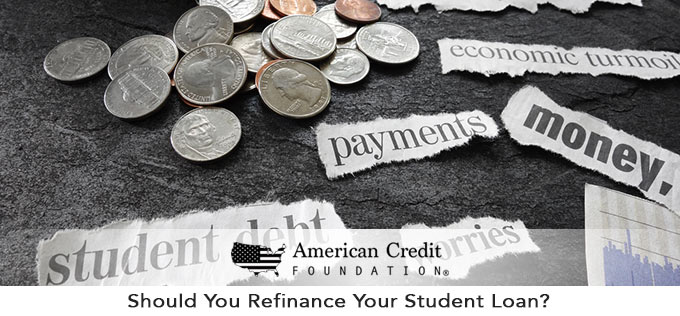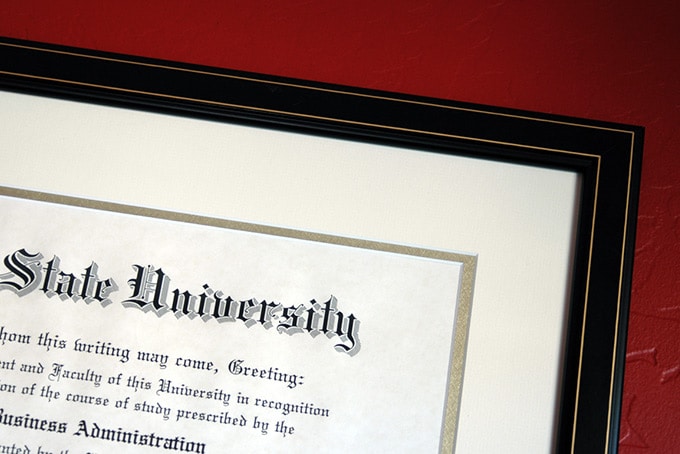
Many people take advantage of student loans to help finance their college education. These loans are typically owned by the federal government and offer specific benefits not available through private lenders. Proof of credit, a source of income, and even co-signers are unnecessary in most cases to be eligible for these federal funds. Repayment is usually deferred until after graduation.
But even with these benefits, there are times when it could make good financial sense to refinance student loans through a private source.
What are the requirements, and when does it make sense to refinance federal student loans?
3 Requirements to Refinance Your Student Loan
While it may be easy to qualify for federal student loans, private lenders have much stricter requirements, including:
- You have (very) good credit. Most private lenders will only consider refinancing your student loan if you have an extremely high credit score of 700 and above.
- You have graduated college and earned a degree. While most people start off their college career with plans of finishing within four years, that is not always the path for everyone. Unfortunately, private lenders usually require that you have graduated college with a degree before they will consider you eligible for student loan refinance.
- You have stable income. In addition to good credit and a college degree, lenders also require proof that you have secured a stable job and are earning a steady income.
The Benefits of Refinancing Your Student Loan

Why would you consider refinancing your student loan? If you qualify for student loan refinance according to the requirements above, there could be some real benefits to you, such as:
- Lower your interest rate. Although federal loan interest rates are typically on the lower end, private lenders can offer even lower interest rates to borrowers who have excellent credit. Even if you are only able to lower the rate by a fraction of a percent, that fraction can really pay off over the life of a loan.
- Lower your monthly payment. Several factors go into calculating the monthly payment of a loan. The three biggest factors are amount borrowed, rate of interest, and length of time to pay off the loan. When you refinance your student loan, you have the ability to change two of these: interest rate and length of the loan. If your current monthly payment is too high, you can lower it not only by taking advantage of a lower interest rate, but also by extending the amount of time you have to pay off the loan. This lower payment can help you better budget and ensure that you do not find yourself in default for non-payment.
- Consolidate multiple loans. If you have more than one student loan, you might be eligible for loan consolidation through a private lender. The main benefit of loan consolidation is that you can roll several loan payments together into one lower monthly payment, which can help you pay down your debt faster and easier. Loan consolidation is often another way to qualify for better terms such as lower interest rate and fees.
Possible Downsides to Refinancing Your Student Loan
Even with the benefits of lower interest rates, lower monthly payments, and loan consolidation, refinancing student loans is not always the best option for everyone. The federal government has provided for conditional terms, which are not available through private lenders, and which would be forfeited after refinance. Some of those are:
- You would forfeit the option of future deference, forbearance, subsidy, or discharge. These options are offered to aid former students in loan repayment in special cases of extended unemployment, unexpected changes in income, and other specific circumstances.
- You would forfeit the option of 0% interest offered to some military personnel.
- You would forfeit the option to participate in student loan forgiveness programs offered to certain professions. These professions currently include teachers in specific situations, some Peace Corps and AmeriCorps personnel, and those who work for certain types of public service organizations.
Student loan refinance is not the right option for everyone, but for some people it can be the difference between the benefits of successful debt repayment and the consequences of federal loan default.
Is student loan refinance the right option for you? If you would like more information, or need help weighing your options, contact someone from our team at American Credit Foundation.